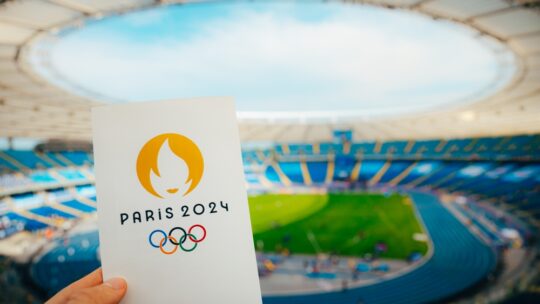
As a reporter and editor for a number of years at New York City dailies and wire services before jumping the fence to the PR side, I was always sympathetic to the plight of PR people whose livelihood depended on getting a “hit.”
Pitches that were completely devoid of news or feature value I immediately trashed. Pitches that contained hard news or feature possibilities I had a reporter look into. Then there were the pitches that fell into what I termed “the PR/Journalist grey zone.” They just missed having the details that would convince a journalist that a story could be developed, but were worth looking into. In those cases, I would reply to the PR person that I needed more details and responded with as list of questions.
But there was one type of pitch that I would immediately deep six—ones that were obviously promotional and hyperbolic.
Olympics Pitching: Avoid Hyperbole
With the Paris summer Olympics fast approaching (July 26-August 11), journalists will soon be bombarded with pitches by PR practitioners on behalf of the brands they represent. Many will be trashed by journalists, because they will resemble advertising copy instead of news value.
Here's an extreme example of an Olympics press release that relies on hyperbole. It was disseminated by NBCUniversal and headlined “NBCUniversal “Saves the Date” for the Olympic and Paralympic Games Paris 2024.”
After three subheads that had nothing to do with the reason for the Olympics—the athletic competitions—the lead paragraph read:
STAMFORD, CONN – June 5, 2023 – Dolly Parton, Savannah Guthrie, Team USA athletes, a partnership with The Knot, and even more celebrities are part of NBCUniversal’s “Save the Date” campaign that will help fans get ready for next summer’s highly anticipated Olympic and Paralympic Games Paris 2024, scheduled for July 26 – Aug. 11, and Aug. 28 – Sept. 8, respectively. Backed by the power of NBCUniversal’s Symphony promotional engine, the bespoke campaign kicks off a yearlong marketing and promotional effort that will drive viewers to NBCU’s coverage of the biggest media event of 2024.”
Crafting a pitch or press release like the above will be rejected by non-trade editors, in my estimation. Instead, consider doing the following:
- Craft your pitch or press release as if you were a reporter for a wire service, without using grandiose words.
- Never limit the pitch to one short paragraph. Craft it as either a news or feature story.
- For pitches, include several different ways a story can be crafted.
- Send the pitch to editors of various sections of a publication, but always let them know that it has been sent to others.
- Never provide B-roll to TV producers. It’s hardly ever used. Instead, emphasize the feature possibilities and, importantly, send them any articles that appeared in major trade or consumer publications about the subject. Having a story in a major publication is the easiest way to have it covered on TV.
- Never shot-gun a pitch. Make certain that they were sent to the journalists or producers who would be most interested in the subject.
- In all pitches, include names and mini-bios of individuals who would be available for interviews. Ensure they are the person most knowledge about the subject.
- Never use the same pitch for all editors or TV producers. Just as there is no one-size PR crisis plan, and every crisis plan needs to be constructed to fit the occasion, the same is true when pitching a story. Tailor the pitch according to the publication or journalist you’re pitching.
Arthur Solomon was an SVP/senior counselor at Burson-Marsteller, responsible for restructuring, managing and playing key roles in significant national and international sports and non-sports programs. He has been a key player on Olympic marketing programs and also has worked at high-level positions directly for Olympic organizations.
